 When you’re sipping your favorite cup of delicious coffee (whether you had some brewed at home or had ordered a cup from your favorite coffee shop), did you ever wonder where these things go afterward? Well, turns out coffee grounds can still be quite useful. Besides having to use it as part of your skin and hair regimen or as a soil and garden supplement, you can also use these as food for your compost worms.
When you’re sipping your favorite cup of delicious coffee (whether you had some brewed at home or had ordered a cup from your favorite coffee shop), did you ever wonder where these things go afterward? Well, turns out coffee grounds can still be quite useful. Besides having to use it as part of your skin and hair regimen or as a soil and garden supplement, you can also use these as food for your compost worms.
If you’ve been wondering if worms like coffee grounds, the answer may surprise you. There are actually a number of ways that your worm farm can benefit from a few grinds of used coffee grounds. Read on to learn how these organisms react to the presence of this interesting organic fertilizer!
Quick Recap: What Is Vermicomposting?
Vermicomposting is an incredible process that transforms organic waste into a rich, nutrient-dense soil amendment, all with the help of tiny but mighty worms! These tiny creatures eat their way through a mixture of food scraps, leaves, and other organic materials, breaking them down and producing a rich compost that’s perfect for nurturing plants and flowers.
But that’s not all! Vermicomposting also helps reduce household waste and greenhouse gas emissions, and creates a sustainable way to care for the environment. It’s truly a win-win. With vermicomposting, you get to play a small but significant role in creating a greener world, all while reaping the rewards of lush and thriving plants.
So why wait? Get started on your vermicomposting journey today and experience the magic of turning waste into gold with your own worm farm!
What to Do with Used Coffee Grounds? (Re)Using Spent Coffee Grounds as Fertilizer
Grounds from your coffee are organic matter. So instead of throwing these away after use, you may just put some in your indoor or outdoor worm composting bin (whether you’re into raising and breeding nightcrawler or red worms) and use them as a composting method.
Don’t let their moody dark brown color confuse you – the effects of coffee grounds are numerous. Not only are you providing nourishment to your composting worms, but you’re also helping mother nature experience a garbage-less environment. Scientific studies also show that they act as a natural pesticide and even have antibacterial properties.
So you can imagine this as being a better alternative to landfill accumulation.
So, Do Worms like Coffee Grounds?
If you’re wondering: “Will worms eat coffee grounds?” Yes, worms do enjoy some instant coffee pick-up! Why do worms like coffee grounds, you might ask? Well, worms need protein to survive, and they likely get some of it from eating the bacteria, fungi, algae, and protozoa that naturally occur in the soil alongside organic matter like yard clippings, leaves, and food scraps.
So, when you add coffee beans rich in nitrogen to your garden or diy vermicomposting bin — they become very happy! The nitrogen helps them grow larger faster and concentrate their waste for better soil enrichment.
Do Worms like Used or Unused Coffee Grounds?
Both used and unused coffee grounds can be used as a food source in vermicomposting. However, used coffee grounds have a lower acidity level than fresh ones, making them a better option for vermicomposting.
Fresh coffee grounds can also be used, but they should be added sparingly and combined with other high-nitrogen materials to counteract their acidity.
How Much Coffee Grounds Should I Add?
The amount of ground coffee you should add to your vermicompost depends on various factors such as the size of your worm bin, its composition (ratio of plant material vs. organic matter), the amount of worms you’ve got, and whether you’re using spent or fresh coffee grounds. It’s best to start with small amounts to see how your worms will react, then work around that.
As a general rule, coffee grounds should not make up more than 1/8th of your bedding material or compost, as excessive amounts could result in too much acidity. It’s best to spread them in thin layers over large areas or mix them into other compost materials first before spreading small amounts of coffee grounds throughout your bin or beds.
Are Coffee Grounds Acidic? Can Coffee Grounds Acidify Your soil?
When using spent coffee grounds as fertilizer, you need to consider the quantity that you will put into the composter, as too much of these can come out too acidic for your worm bin and may eventually harm or burn your worms later on (worms have susceptible skins, thus, their need to be in moist surroundings at all times).
So, coffee grounds should be added in moderation, as the acid in coffee beans can lower the pH level of the compost, making it inhospitable to some types of worms and harming them.
However, if things ever get out of hand and the worm bedding itself gets too acidic, you can always put in some crushed egg shells to help neutralize the system or change the bedding and restart, so you don’t lose your little helpers.You can always save the bedding that you take out for future bedding material for your worms when you harvest the castings/compost.
How to Use Coffe Grounds for Vermicomposting
Coffee grounds are typically dry in texture, so you might want to have these soaked in some chlorine-free hot water first (you can also try using some rainwater). This way, you’re not contaminating the grounds with any chemicals. You can then use wet coffee grounds as a liquid fertilizer and sprinkle some into the bedding. The worm bedding will be able to absorb this and become nutritive worm food.
Since compost worms also eat their bedding, you can still supplement them with some coffee (in its liquid form) when you pour some on top of it. If you happen to be using grounds from flavored or decaffeinated coffee, it shouldn’t be a problem. Your vermicomposting worms will be able to eat these since they are still recyclable, organic material. It’s definitely safe for your worms to eat (if humans can, why can’t they, right?).
You can even compost paper coffee filters, too, as they are biodegradable! So, don’t be afraid to feed some to your worms and enrich your soil with coffee grounds. It will definitely be a good addition to their diet.
How to Store Used Coffee Grounds?
Storing used coffee grounds is not just a matter of putting them in a container and forgetting about them – it’s an opportunity to be creative, save money, and make a positive impact on the environment!
Start by repurposing an old coffee container or mason jar. Then, collect your used coffee grounds in this container and keep it in a dry, cool place. As the container fills up, you’ll have a wealth of nutrients at your fingertips that you can use for gardening, vermicomposting, and other projects.
Necessary Considerations & Tips Before Adding Coffee Grounds to Your Vermicompost
Organic matter like the delicious coffee needs oxygen to decompose properly. So, make sure you turn your compost piles regularly with tools such as shovels or pitchforks to ensure aeration. Also, be sure to break up large clumps before applying around plants if you plan on doing so directly since large chunks left piled high can affect soil moisture levels and respiratory processes within the earthworm population inhabiting those areas.
Additionally, bear in mind that they take longer than most nitrogen-rich fertilizers to decompose – so avoid adding large volumes at once lest they overwhelm your worm population with carbon dioxide levels instead of letting them enjoy the positive effects of coffee grounds!
Enrich Your Soil with Coffee Ground Vermicompost
Think of it this way: each time you have a cup of fresh or instant coffee, you’re creating a valuable resource that can enrich the soil and help your plants grow. With a little bit of effort, you can turn your morning cup of coffee ritual into a sustainable habit that benefits the environment, your worm farm, and your garden.
So, why not kill two birds with one stone? Start storing your used coffee grounds today and use them for vermicomposting! Your worms and plants will thank you.


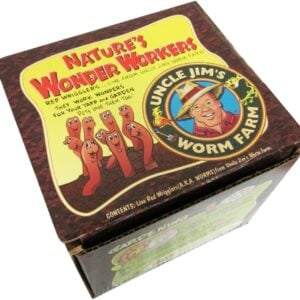
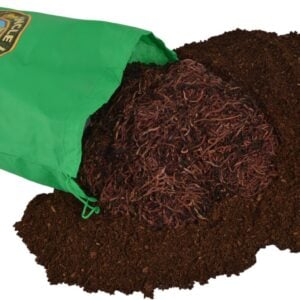
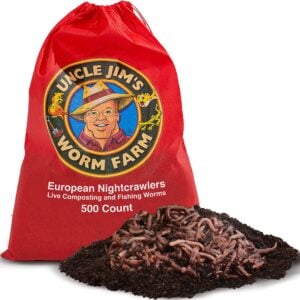
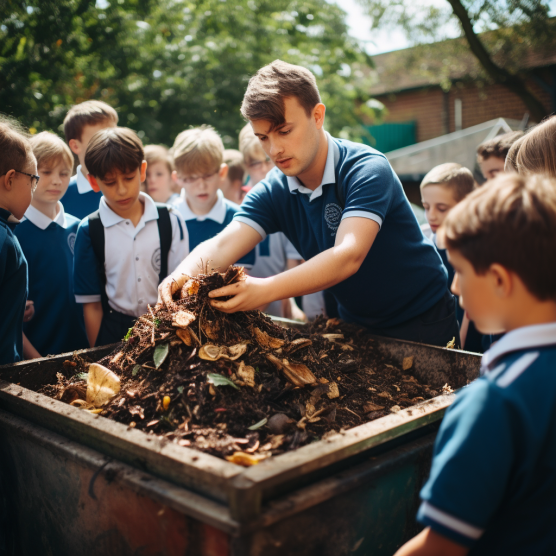
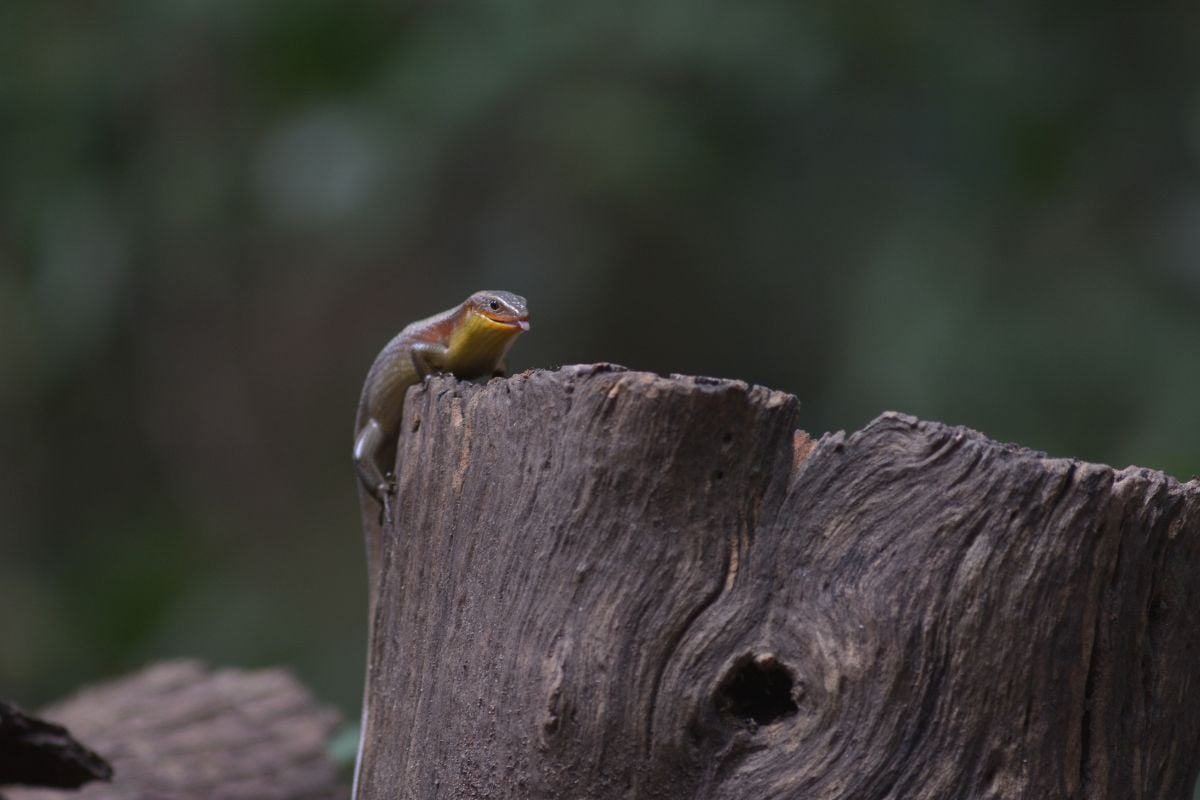
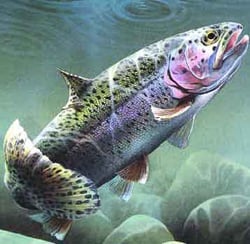

22 thoughts on “Vermicomposting 101: Do Worms like Coffee Grounds?”
can you use a small amount of Plain Coffee and add it to your Worm chow????
Not Grounds but grinded Coffee I grinded in a coffee grinder
Do the worms seem to vermacompost faster with the caffeine from the coffee grounds ?
Im wondering how much is too much. (aprox 8TBS daily) I currently throw all spend grounds into my outdoor bin, but I’ll be setting up my indoor living soil/earthworm habitat soon and don’t want to throw the ph off or hurt my babies! Should I use the ph meter regularly?
Curious if I have been using TOO MUCH coffee grounds? Asking for coffee grounds from a couple of coffee shops has brought me with an abundance and I was wondering, how much is too much?
Hello Harry;
Too many coffee grounds can turn acidic and burn or harm your worms. It is best to add them in moderation. Coffee grounds should not make up more than 1/8th of your bedding material or compost. If you add too much, you can cause the pH to change drastically and this can cause a health issue for the worms. If you think that you have already added far too many coffee grounds, you should change the bedding and restart your bin so that you do not lose all of your worms.
You can still use the bedding that you take out, but add to it and mix it well and save it for future bedding material for your worms when you harvest the castings/compost.
We hope this information helps!
Is there a difference in acidity between grounds that have been used to make coffee and grounds that have not been used? I had some old beans that were too old to make coffee, so I ground them up and added to the farm. Now I’m wondering if I should be concerned with pH.
NO ! Unbrewed coffee contains too much acid, which will lower your soil Ph, and is not good for worms.
Always use brewed coffee grounds – sparingly.
I have a plastic worm ben I made with little teeny tiny holes and very top and I’ve had it probably 6 months now and now I’m having a problem with the worms trying to crawl out between the crack between the iid and the sides. And have never had that problem before what is going on. Are they needing more food, or I know they’re not too wet because I water them maybe once a week.
I was having the same problem. Then I read that the lid should just sit loosely on the worm bin to add even more air. That and now bedding did the trick. Not sure which was more important, but the worms are no longer climbing the walls
Your moisture may be off your ph may be off or they are in need of another layer of fresh food. They migrate when conditions are not ideal.
The worms are crawling out because they do not like their atmosphere maybe it’s too acidic maybe it’s too wet maybe it’s too hot based on what you’ve said it’s probably too acidic you want to add eggshells heat them up and grind them up and like the leader of this site said maybe you have to redo your bit bed anytime worms are crawling out it’s because they don’t like their home I ran away at 15 I know what I’m talking about LOL
can I breed mealworms in coffee grounds will they do well
It is a common myth that coffee grounds are acidic. USED coffee grounds are not acidic and will NOT harm worms. However, used coffee grounds are high potassium and magnesium. Using too much grounds can elevate your soil’s potassium levels which can be detrimental to plant growth. Too much potassium will inhibit the uptake of other nutrients by plants. Admittedly, I am talking about large amounts of grounds over a period of years but small to moderate amounts over years can also have the same effect. If you use used grounds as worm food, I do not know if the resulting worm castings will also have high levels of K and Mg.
Question… I dried my used coffee ☕️ grounds so I could store them without getting mold… are the grounds still good to put in a small container of boughten worms when you go fishing
the coffee grounds i get are quite lumpy about 2-3mm in diameter. So should i dry them and powder them before adding or it can be directly put on bedding? Your response would be much appreciated.
Hello!
You can add the Coffee Grounds the way they are but the worms can process smaller pieces faster as the smaller, the faster they break down. Either way, the worms will eat it all up.
How course of ground coffee can it be?
Hello Angela;
As With any food scraps that you put into the worm bin, the smaller the better as the smaller, the faster it breaks down and the faster the worms can process it. So ground is better, finer grounds even better.
Uncle Jim’s Worm Farm
I have covered my garden, which is approximately 12′ X 20′ with leaves from my yard. I dry my used coffee grounds in a dehydrator on a daily basis. I currently have about 3 or 4 coffee cans full of dried used grounds. Can I sprinkle these over top of the leaves, or should they go on bare ground? Please advise. Thank you for your time and attention to this question.
Hello Andrew;
Thank you for your question. Do you have worms in the garden? Are you asking if this is safe for the worms? Or are you just adding these to the garden? The leaves can heat up if they are thick and will get very hot, perhaps too hot for the worms if you have a ton of them on top. Other than that, they are fine and so are the coffee grounds. You can add both to the garden with or without worms.
Uncle Jim’s Worm Farm
I got a large bag of used coffee grounds from a coffee shop. It started to mold, so I threw them away. Will the mold that grows on coffee grounds harm my worms?